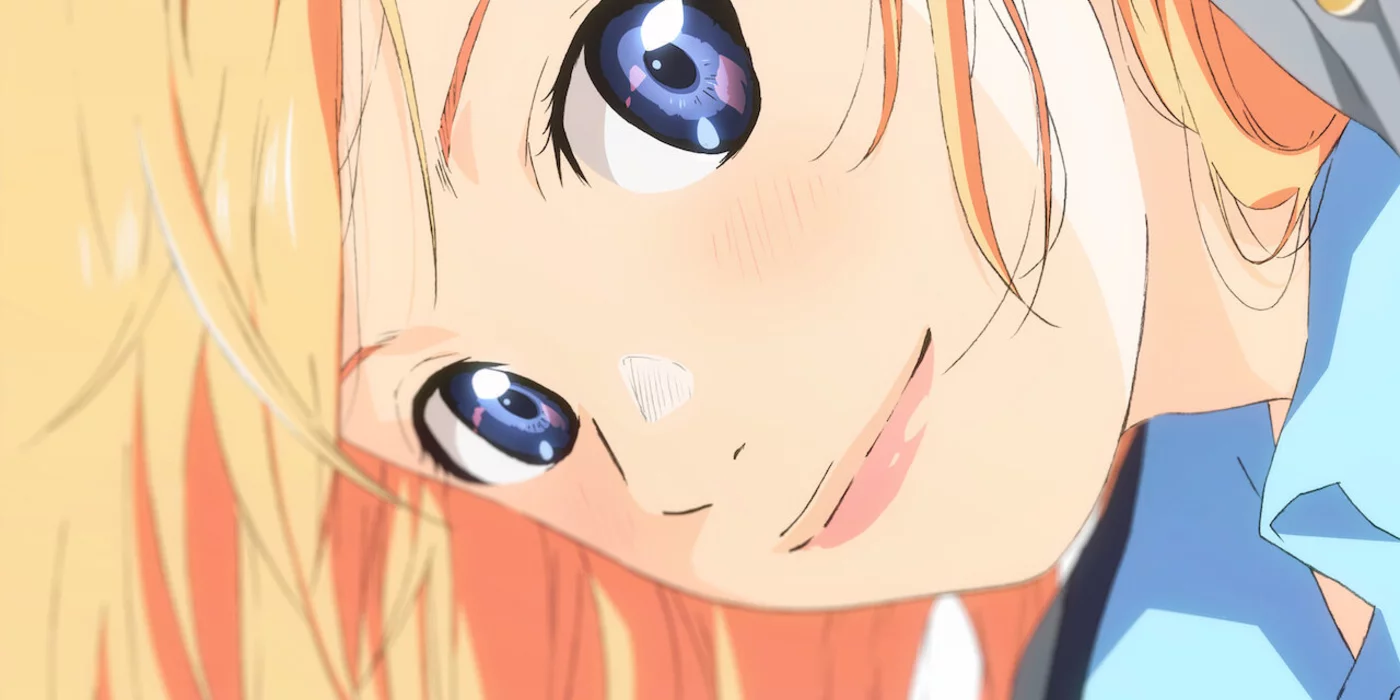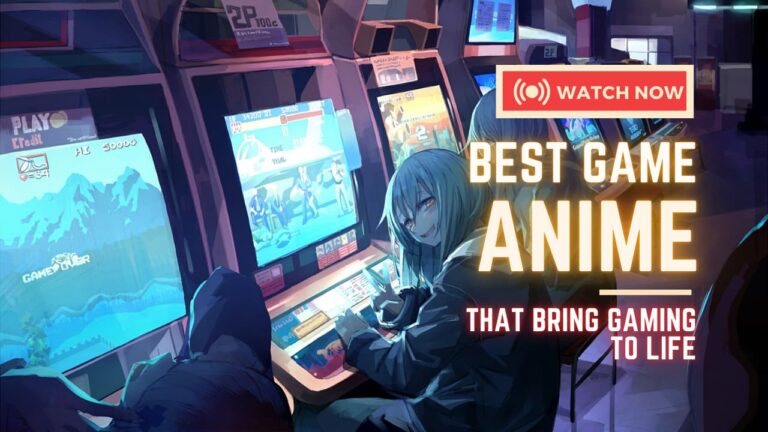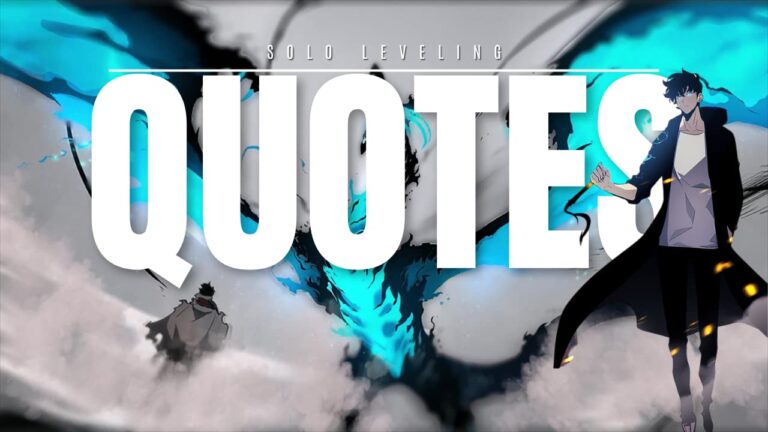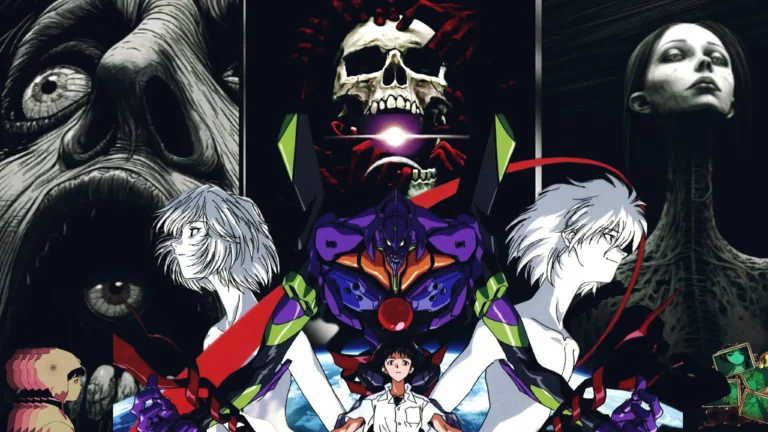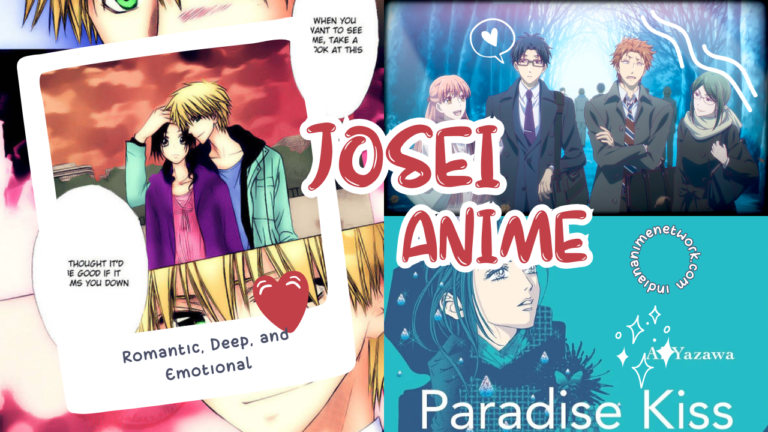Top 10 Musical Anime Every Music Lover Should Watch
There are some anime series that stand out from the rest, not just because of their engaging storylines and well-developed characters, but also because of the amazing music that accompanies them.
If you’re a fan of both anime and music, then you’ll want to check out some of the best musical anime series out there. Musical anime revolves around characters’ passion for music, often incorporating performances as a central element of the narrative.
These series explore the emotional and transformative power of music, blending genres like slice of life, romance, and drama with the artistic expression of sound.
The musical elements aren’t merely for entertainment—they serve as vital storytelling tools, reflecting character growth and emotional depth.
For example, Your Lie in April (2014) follows a pianist’s journey to rediscover his love for music after the trauma of losing his mother.
The piano plays a crucial role in shaping his character and relationships, while the violin provides an emotional counterpoint through his muse.
Nodame Cantabile (2007) similarly showcases the life of classical musicians, with piano and conducting taking center stage, highlighting their personal struggles and aspirations.
Carole & Tuesday (2019) blends futuristic sci-fi with music, focusing on two musicians who combine their talents—guitar and piano—to inspire a revolution in an artificial, commercialized world.
Meanwhile, K-On! (2009) captures the carefree charm of high school girls forming a band, with instruments like guitar, bass, drums, and keyboard accompanying their coming-of-age story.
Musical anime goes beyond the performances to explore the transformative connection between music, emotion, and life itself, providing an immersive experience that resonates long after the final note.
From classical pieces to contemporary rock tunes, these shows will have your toes tapping and your head nodding along with the beat. So without further ado, here are five of the best musical anime series you need to watch right now.
10. Hypnosis Mic: Division Rap Battle – Rhyme Anima
It’s so bad it’s good. Hypnosis Mic: Division Rap Battle – Rhyme Anima delivers an intriguing fusion of hip-hop culture and futuristic narrative, with rap music taking the spotlight in a world where battles are fought with words, not weapons.
Set in a dystopian society where all physical weapons are banned, Ichiro Yamada and his team engage in rap battles using Hypnosis Mics, devices capable of influencing minds through music.
The anime boldly embraces its unique premise, turning the competitive nature of rap battles into an expressive form of conflict resolution.
The narrative dives into the struggles of different divisions in Tokyo, each with its own rap crew, from the chaotic Mad Trigger Crew to the more refined Fling Posse. Tracks like “Battle Anthem” and “Hoodstar” become vessels for personal stories, allowing characters to voice their ambitions, frustrations, and complex emotions.
One of the standout lines, “Words are my weapons, and rhythm is my shield; I’ll fight with everything I’ve got,” encapsulates the essence of the series, where lyrical mastery is paramount, and the stakes are more than just pride—they’re life-changing.
The anime also presents a modern twist on musical history, placing emphasis on rap as an evolving art form.
Rather than focusing on traditional instruments, Hypnosis Mic highlights how turntables, beats, and microphones are integral to the genre’s soundscape.
The battle scenes are visually dynamic, reflecting the energy and rhythm of each performance, while the musical tracks pay homage to the fast-paced world of rap, making the series resonate with fans of both anime and hip-hop.
Hypnosis Mic: Division Rap Battle – Rhyme Anima stands as a bold experiment in merging music with narrative.
Its exploration of power through words highlights the transformative ability of music, proving that sometimes, the strongest battles are fought with nothing more than a mic in hand.
As the final verse drops, the anime leaves a lasting impression, encouraging reflection on how music can shape identities and influence the world around us.
9. Sound! Euphonium
Sound! Euphonium is a beautifully crafted exploration of youth, ambition, and the transformative power of music, set against the vibrant backdrop of a high school concert band.
The story centers on Kumiko, a first-year student who finds herself drawn back into the world of music after a hesitant start.
As she reconnects with her passion for the euphonium, the anime delves into the intricacies of band life, friendship, and the pursuit of excellence.
The narrative is enriched by its authentic portrayal of the challenges and triumphs faced by aspiring musicians.
Each character’s journey is underscored by the powerful melodies they create together, with pieces like “Shinobi no Kawa” and the dramatic performances leading up to the national competition serving as pivotal moments of growth.
The sentiment, “In music, as in life, every note is a step towards who we are meant to be, and every mistake is a chance to grow,” resonates throughout, encapsulating the essence of personal and artistic development.
The euphonium, as a symbol of both individuality and teamwork, plays a vital role in Sound! Euphonium. Kumiko’s evolution from uncertainty to confidence mirrors her mastery of the instrument, embodying the spirit of perseverance.
The meticulous attention to the details of each musical performance—how breath, technique, and emotion intertwine—creates a palpable sense of authenticity, immersing the viewer in the characters’ struggles and triumphs.
Sound! Euphonium ultimately serves as a poignant reminder of the power of music to inspire and unite. As the final notes fade, the series leaves a lingering resonance, inviting reflection on the connections we forge through shared experiences.
It is a celebration of the journey, where every practice session, every performance, becomes a testament to the beauty of growth and the harmonious notes that define our lives.
8. Nodame Cantabile

If you’re a fan of pianos and romance, then the Nodame Cantabile anime is perfect for you. This delightful series follows the quirky music student Nodame and her relationship with talented young pianist Chiaki.
From their first meeting to their eventual marriage, the two characters share many memorable moments together – all set against the backdrop of some beautiful classical music.
So all in all, if you’re looking for a light-hearted romantic anime to watch and a fan of classical music, or anime, then you’ll love Nodame Cantabile.
The series is full of beautiful music and funny moments, making it one of my all-time favorite musical anime. Whether you’re a seasoned musician or just a casual anime fan, I highly recommend giving Nodame Cantabile a try. You won’t be disappointed!
7. K-On!
K-On! (2009) captures the heart and soul of friendship and musical discovery, wrapped in a light, slice-of-life narrative.
The story follows the formation of the Light Music Club, where a group of high school girls bond over their shared passion for music.
While the anime leans into a more carefree, playful tone, it finds depth in the relationship between music, personal growth, and the creation of lasting memories.
At its core, K-On! explores the journey of becoming a musician, with a special focus on the electric guitar and drums, highlighting their significance in the band’s sound.
“Fuwa Fuwa Time”, one of the Light Music Club’s most beloved songs, encapsulates the whimsical nature of their performances, reflecting both the fun and dedication behind each note.
Yet beneath the simplicity of their tunes lies a deeper message about teamwork, self-discovery, and the bittersweet passage of time.
“We’ll play together forever, even when the notes fade,” echoes throughout the series, symbolizing how music becomes an unbreakable thread that ties them together.
Instrument history also plays a key role. The anime doesn’t shy away from showcasing the growth that comes with mastering an instrument.
From learning the basics to finally performing live, each member’s journey is detailed, with the electric guitar standing as a symbol of their evolving confidence and unity.
What makes K-On! truly stands out is not just its music but the emotional resonance behind it. Each performance is a moment of celebration and reflection, where the characters realize how far they’ve come.
It’s more than an anime about music; it’s a reflection of how simple joys can lead to profound experiences. In its closing notes, K-On! reminds us that, much like music, life is fleeting, but the echoes of those shared moments live on.
6. Your Lie In April (Shigatsu wa Kimi no Uso)

Your Lie in April is a heartwarming and heartbreaking anime series that will touch your soul. The story follows the journey of Kousei Arima, a prodigy pianist who is unable to hear the sound of his own piano playing after the death of his mother.
With the help of Kaori Miyazono, a free-spirited violinist who encourages him to open up and express himself, Kousei rediscovers the joys of music and life.
Your Lie in April is an unforgettable experience that will stay with you long after you finish watching it. From the moment I started watching it, I found myself completely engrossed in this show about music and growing up.
It’s perfect for anyone who enjoys shows like K-On! or Natsume Yuujinchou because of its focus on relationships between people through the lens of music.
If you’re looking for something to watch over your spring break, or if you’re just looking for an emotional anime series that will make you feel everything, then look no further than Your Lie in April.
5. Kids On The Slope (Sakamichi no Apollon)

Kids on the Slope masterfully intertwines music and personal growth within the backdrop of 1960s Japan. This anime follows the lives of Kaoru and Sentaro, two high school students whose friendship blossoms through their shared love of jazz.
As they navigate the complexities of adolescence, the series reveals how music serves as both a refuge and a transformative force in their lives.
The narrative is rich with authentic musical elements, capturing the essence of jazz not just as a genre, but as a way of life.
The characters’ improvisational sessions reflect their struggles and aspirations, with tracks like “Someday My Prince Will Come” becoming emblematic of their emotional journeys.
The sentiment, “Jazz is like life; it’s unpredictable and requires you to listen deeply, both to the music and to yourself,” encapsulates the show’s philosophy, emphasizing the profound connection between music and personal expression.
Instrument history is woven seamlessly into the storyline, particularly through the prominent use of the piano and drums.
Kaoru’s mastery of the piano and Sentaro’s dynamic drumming are not merely skills; they symbolize their individual struggles and triumphs.
Each musical performance acts as a catharsis, allowing them to express feelings that words alone cannot convey, from joy to sorrow, and everything in between.
Kids on the Slope ultimately presents a beautiful tapestry of friendship and musical discovery. It illustrates how the power of music can transcend generational divides, serving as a bridge between past and present.
As the final notes linger, viewers are left with a poignant reminder of the fleeting nature of youth and the lasting impact of connections forged through shared passions.
The series resonates long after the last chord fades, inviting reflection on the melodies of our own lives and the harmonies that bind us together.
4. Nana:
Nana is a captivating exploration of dreams, relationships, and the relentless pursuit of passion within the realm of music. The anime follows two women, both named Nana, whose fates intertwine through their shared experiences and love for music.
Set against the backdrop of Tokyo’s vibrant punk and pop scenes, the series delves deeply into the emotional highs and lows of both artistry and personal growth.
One of the unique elements of Nana is its authentic portrayal of the music industry, specifically focusing on the challenges musicians face as they navigate fame, friendship, and love.
Songs like “Rose” and “Lucy” by the fictional band Black Stones, led by Nana, embody the raw energy and rebellious spirit that drives much of the anime’s narrative.
These songs serve as emotional outlets, reflecting the inner turmoil and desires of the characters as they chase their dreams in the unforgiving world of professional music.
The history of instruments, particularly the electric guitar, is central to the anime’s atmosphere, symbolizing the connection between artistic expression and personal identity.
Nana’s relationship with her guitar is not just about creating music but about survival, carving out a space in a world that often seeks to undermine individuality.
“I’ll scream until the world listens, even if it breaks me,”
The relentless drive of artists who seek validation in a world that often demands more than they can give. Nana transcends the typical boundaries of musical anime, intertwining the characters’ personal struggles with their artistic ambitions.
It’s not just a tale of two musicians but a poetic reflection on the pursuit of happiness, where music becomes both an escape and a mirror to the soul.
As the melodies of the story fade, what lingers is a symphony of broken hearts, fierce dreams, and the inevitable choices that define who we are.
3. Detroit Metal City

Detroit Metal City is an outrageous, darkly comedic take on the contrast between personal identity and public persona in the world of extreme music.
The anime revolves around Johannes Krauser II, the demonic stage persona of a mild-mannered musician with a passion for sweet, romantic pop songs.
The duality between his true self and his alter ego is at the heart of the narrative, offering both absurd humor and a deeper commentary on the nature of self-expression in the music industry.
The show’s musical foundation lies in its satirical depiction of the death metal scene, where intensity and theatrics define the genre.
Krauser’s band, Detroit Metal City, becomes infamous for songs like the opening song “Satsugai” (Murder), perfectly capturing the unhinged and outrageous tone of the series.
A blistering, high-energy track filled with aggressive guitar riffs and growling vocals, it serves as an introduction to the extreme persona of Johannes Krauser II and the chaotic world of death metal.
The song’s intense tempo and dark lyrics immediately set the stage for the contrast between the protagonist’s peaceful personal life and his violent stage persona, encapsulating the over-the-top nature of the series.
The raw, guttural sound of the electric guitar and heavy drums amplifies the chaotic energy, serving as a metaphor for the internal conflict the protagonist faces.
As Krauser screams, “My music will kill you, it will burn your soul to ashes!” the show pushes the boundary between artistic expression and personal limits, revealing the cost of living through an alter ego that consumes more of one’s true self.
Excluding the anime’s opening and ending OST, the runtime of Detroit Metal City is concise, with each episode lasting around 13 minutes.
This short format focuses on fast-paced comedic scenes and sharp narrative moments, maximizing humor and impact without unnecessary filler.
The quick, episodic structure enhances the absurdity and gives the audience a punchy experience that aligns with the energetic nature of the show.
Beneath all the absurdity, Detroit Metal City offers a sharp critique of the often contradictory pressures placed on artists.
The history of instruments, particularly the electric guitar, plays a pivotal role in shaping Krauser’s identity on stage, yet his offstage life yearns for the gentler melodies of a simpler existence.
This clash between art and authenticity resonates through each chaotic performance, questioning where the line between showmanship and self is drawn.
At its core, Detroit Metal City is not just about the world of metal music; it’s a chaotic symphony of identity crisis.
With its satirical take on fame, self-expression, and the absurdity of performance, the anime leaves us reflecting on how far one will go to fit into the world they believe they must inhabit.
Each shredding riff becomes a scream for understanding, and when the curtain falls, what remains is the echo of a person who isn’t sure where the music ends and begins.
With outrageous costumes, heavy metal music that is sure to get your head banging, and nonstop action and comedy, Detroit Metal City is one anime you do not want to miss!
It will have you laughing out loud one minute only to find yourself clenching your fists in anger the next. With over 12 episodes and 13 minutes of runtime, there are plenty of reasons for any self-respecting metalhead or anime lover to give it a try!
2. Blue Giant
Blue Giant brings the fervor of jazz to life, capturing the emotional journey of Dai Miyamoto, a young saxophonist driven by an unshakable passion for music.
Set against the backdrop of a rapidly changing Tokyo, the anime explores the transformative power of jazz as a medium for self-expression.
Dai’s journey from amateur to skilled performer mirrors the improvisational nature of jazz itself—fluid, unpredictable, and full of raw emotion.
The narrative is infused with music’s spontaneity, especially during live performances, which become central to the story.
Tracks like “My Favorite Things” and “Moanin’” reflect the unfiltered passion behind every note, with Dai expressing his deepest emotions through his saxophone.
As one memorable line says, “Jazz isn’t just about playing the notes; it’s about expressing what’s in your soul,” emphasizing the deep connection between personal experience and musical performance.
The performances in Blue Giant are not just scenes of artistic mastery but moments of emotional revelation for both the characters and the audience.
Instrument history plays a crucial role in the story. The saxophone, in particular, becomes an extension of Dai’s identity, symbolizing his relentless pursuit of greatness and his internal struggles.
The attention to musical detail—how breath control, finger placement, and the very feel of the instrument all matter—grounds the anime in a rich realism that mirrors the jazz world’s demanding nature.
Blue Giant is more than just a musical anime—it’s an exploration of ambition, the human spirit, and the hunger for self-expression.
It’s a love letter to jazz, not just as a genre but as a way of life. As the final notes hang in the air, the series leaves a lingering sense of yearning, inviting viewers to consider the music within themselves, the unspoken truths that only art can reveal.
Every note, every solo, tells a story, making the journey as profound as the destination.
1. Beck: Mongolian Chop Squad

Beck: Mongolian Chop Squad is a soulful dive into the world of rock music, where the journey of self-discovery is intertwined with the raw power of sound.
At its heart, the anime follows Koyuki, a teenager who stumbles into the vibrant, rebellious world of underground music.
What sets Beck apart as a musical anime is its authenticity—its homage to rock legends, iconic instruments, and the emotional depth music brings to the human experience.
The anime beautifully portrays the struggle and passion of a young band aiming to break into the scene. Through Ryusuke’s Gibson Les Paul, an iconic guitar with a rich history, the narrative taps into the transformative nature of music.
Ryusuke’s guitar becomes a symbol of rebellion and artistry, reflecting the raw energy of classic rock.
The anime also highlights the cultural significance of tracks like “Slip Out” and “Moon on the Water,” songs that not only fuel the characters’ dreams but speak to universal themes of longing and liberation.
In Beck, music becomes more than a backdrop; it is the lifeblood of the story. The characters’ emotional highs and lows are intricately tied to their music, and each performance reverberates with the sound of their personal struggles.
The moment when Koyuki steps up to perform, with the words, “If you have music, you can connect with anyone,” encapsulates the anime’s core message: music transcends language and connects people in ways that words alone cannot.
What makes Beck an unforgettable musical anime is not just its exploration of the music industry, but the way it mirrors life’s unpredictability and the passion it takes to follow a dream.
The anime pulses with the energy of youth and ambition, where every chord and lyric reverberates with the spirit of rock itself—defiant, hopeful, and timeless.
I love the show for its characters, music, and animation and it is one of my favorite anime shows of all time too. I would recommend this show because it has a realistic storyline without any major twists or turns that keep you on your toes!
What do you think of the list? Did you like it? What are some of your favorite musical anime manga? Let us know in the comment below!
And don’t forget to hit the bell icon here somewhere to get all the latest news, featured articles, and more in your notification bar.

